Being kind to the environment is a noble thought, and the need of the hour. But how green is that LBD you've got your eyes on, or that skirt, which demands to be picked up at the store? Meher Castelino tracks the green fashion movement in India and speaks to designers who incorporate organic fabric and designs into their collections
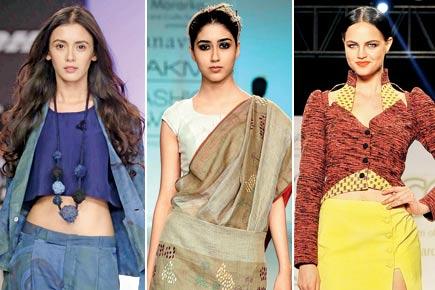
Viewpoint
We trawl the internet for tips to reduce our carbon footprint when conscience strikes, switch off the extra lights and recycle at home and office (we’ve all done that at least once). But how green is that LBD you’ve got your eyes on, or that skirt which demands to be picked up at the store?
ADVERTISEMENT
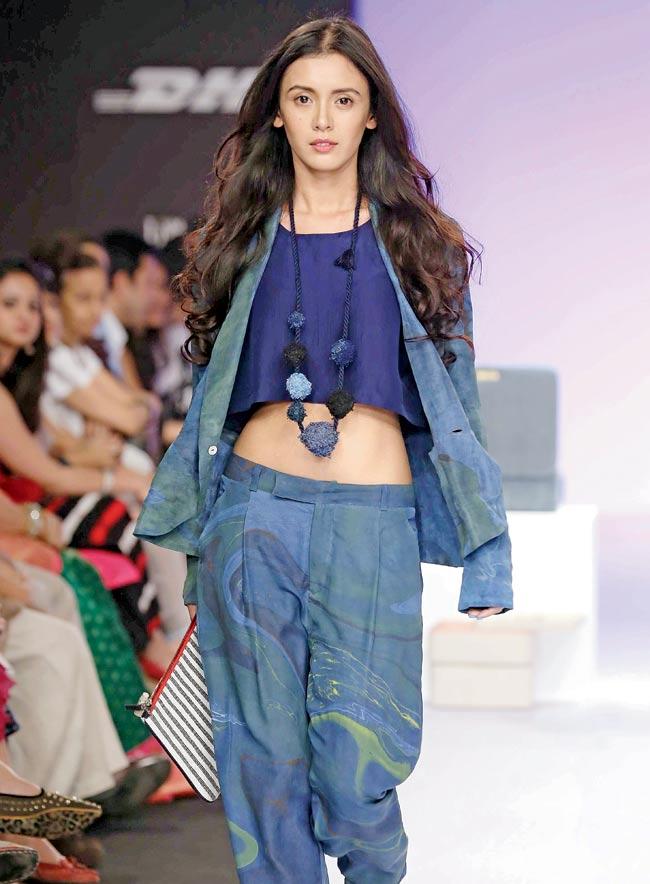
Lakme Fashion Week Summer Resort 2014 boasted of many a green design
As far back as the early 1980’s, the West was looking at sustainable, organic fashion for environment-conscious clothing. Indian fashion, too, has kept up, too, with designers trying to create awareness among buyers for organic fashion. And of course, India always had khadi, the legacy of Mahatma Gandhi.
Green India
India has a prominent presence at the BioFach and Vivaness Trade Fairs held in Nuremburg, Germany every year.
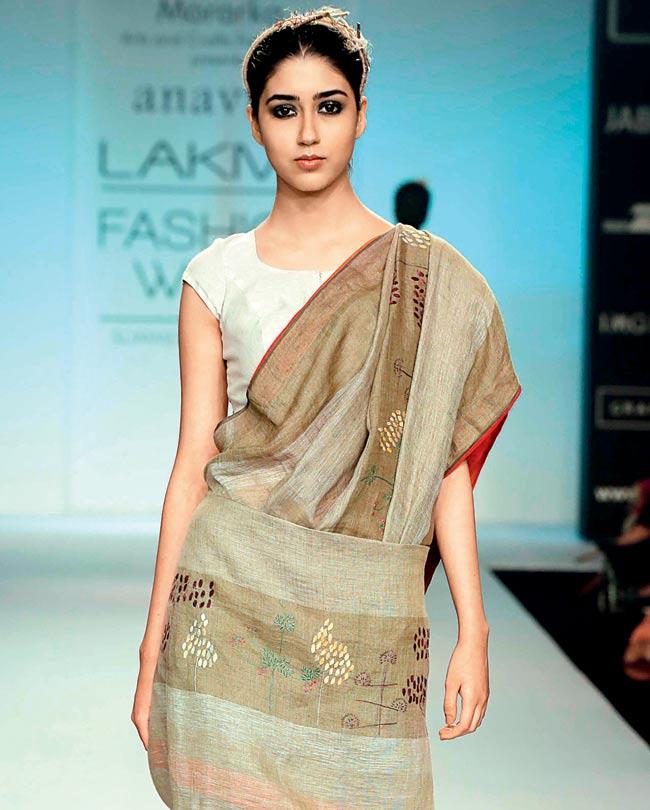
An outfit made of recycled fabrics by Anvila Sindu Mishra and Karishma Sahani
On display are products of companies such as EcoFarms in Yavatmal district, Maharashtra (80 farmers here till 100 acres of land), Appachi Cotton, promoters of organic cotton called “Ethicus” by Mani Chinnaswamy, a third generation in the family went organic in 2000 in South India.
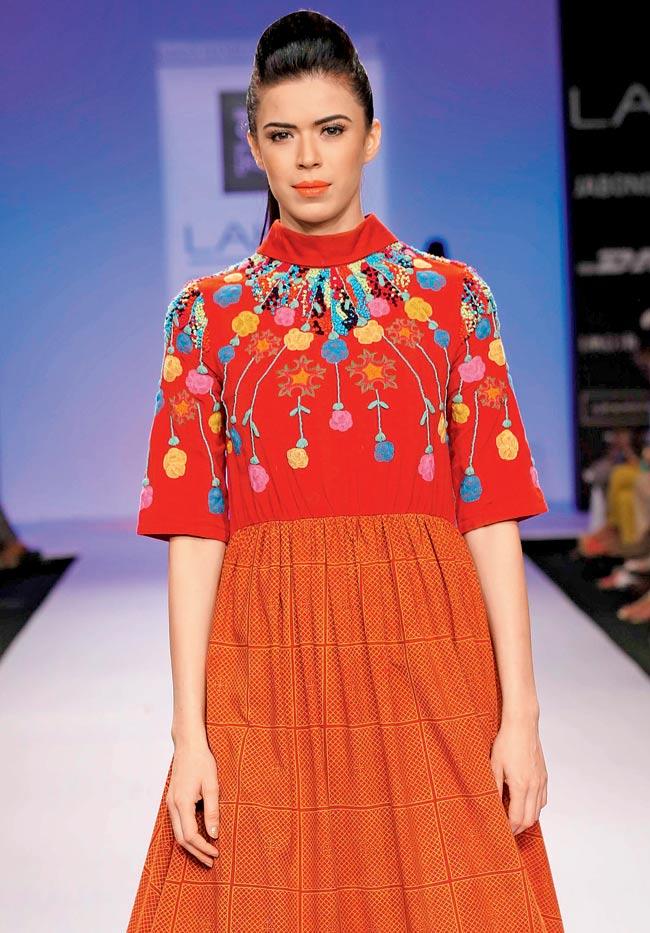
There’s also Pratibha Syntex Ltd whose Vasudha Organic Project started in 1999, which covers nearly 8,000 farmers and 1,25,000 acres. Tvach with its fabric brand “Aurganik” created an impact with its collection called “Back to the Skin” designed by Sabah Khan in 2012. In Jharkhand, the brand, Jharcraft comes out with silks and handlooms and is the largest producer of Ahimsa silk. Navdanya started 30 years ago by Dr Vandana Shiva is the pioneer of organic fabrics whose range, Fibres of Freedom, is a hot selling line of organic clothing and home accessories.
Catch ’em young
To bring this movement down to student designers, the Consortium of Green Fashion (CGF), a joint venture started by the School of Fashion Technology, Pune and Dy-Star India Pvt Ltd, is now in its second year.
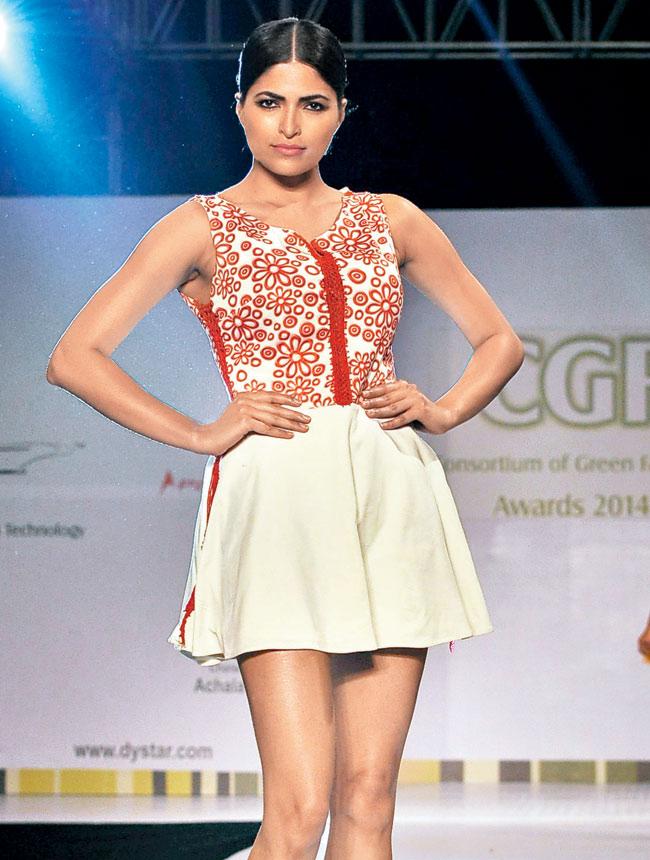
The annual CGF International Conference has students from fashion institutes in India participating in the CGF Fashion Contest. Here, students put their creativity to the ultimate test and concentrate on the mantra ‘reduce, reuse, recycle and be responsible’. The results are often stylish creations true to the sustainable and organic fashion movement.
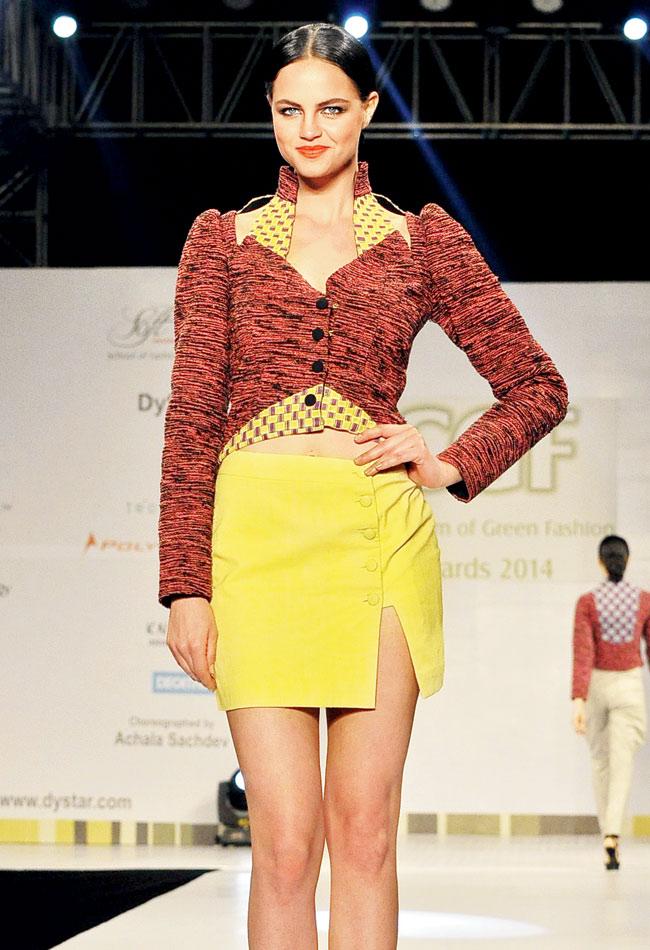
Dr Manju Hundekar, principal, School of Fashion Technology, Pune, believes that one’s body of work reflects the way one treats and thinks about the environment tomorrow. “Fashion has embraced environmentalism through the use of fair practices, naturally available materials and resources. It is common knowledge that many Indian designers and industries are now eco-conscious methods. I think sustainable fashion is a part of the larger social trend, where a product is created and produced after much consideration about the environmental and social impact it will have throughout its life span, including its carbon footprint,”
she explains.
A designer touch
On the glamorous designer front, the Morarka Arts and Crafts Foundation under Director Sangita Singh Kathiwada presented designers Anavila Sindu Misra, 11:11 CellDSGN and Tilla at the latest Lakmé Fashion Week Summer/Resort 2014 where linen, recycled fabrics and khadi were the centre of attention.
Wendell Rodricks has promoted green/organic fashion for two decades using fabrics made from pineapple, banana, paper, along with Malkha cotton, linen, and pure cotton dyed with guava leaf, pomegranate, rice konji, local plants and indigo.
The organic movement in India is also backed by other high profile designers such as Krishna Mehta, Nimish Shah, (who uses GOTS certified fabrics, see box) Vaishali Shadangule, Purvi Doshi, Shruti Sancheti, Karishma Sahani, Sidharth Sinha of N & S GAIA, Gaurang Shah.
What is got certification?
GOTS stands for Global Organic Textile Standard, which defines requirement to ensure organic status of textiles from harvesting of raw materials to labelling, and provides credible assurance to end consumers of the product
Jazzing up the grassroots
Designers Kiran Jaisinghani and Meghna Agarwal, co-founders of MYOHO, say they are drawn to the inherent beauty and rawness of organic fabrics. “They have the added advantage of being eco-friendly and reducing our footprint on the ecosystem. We use the purest natural vegetable and herbal dyes for our textiles along with handloom silks and kora fabrics. Grassroots sensibilities are what we have always proudly tried to bring to our clothes. We try our best to deal with certified fabric dealers and weavers, making sure the symbols of eco-friendliness or at least the information of contents are present. Going green is not only a luxury, but the very essence of survival wherein the footprints of the future are formed.”
Wild in the West
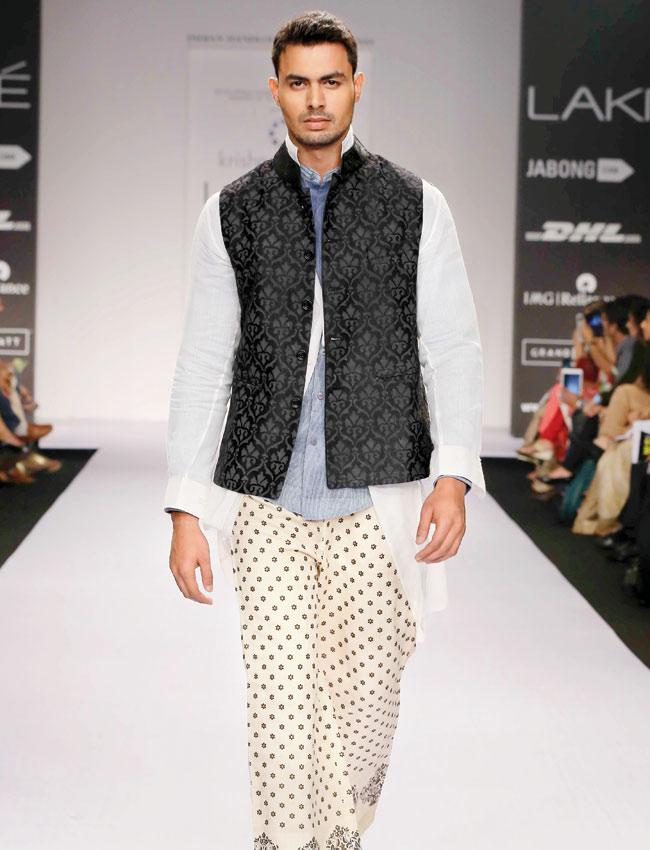
A Krishna Mehta creation, made out of recyclable fabric
>> Hemp is a popular organic fibre in Europe which does not need certification
>> GOTS certified lingerie/camisoles are a favourite for inner wear
>> The brand, Fox Fibre, from Europe is 100 per cent organic and used for casual wear, bathrobes, nighties and knit wear
>> Lotties’ organic infant’s clothes are devoid of lead, cadmium, heavy metals, pesticides or PVC
>> Lana, a children and women’s brand selling in Germany and EU, has 100 percent organic cotton and wool without using bleach, heavy metal, chlorine, no carcinogenic dyes or resin finish.
 Subscribe today by clicking the link and stay updated with the latest news!" Click here!
Subscribe today by clicking the link and stay updated with the latest news!" Click here!






